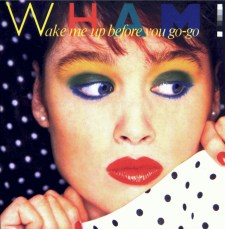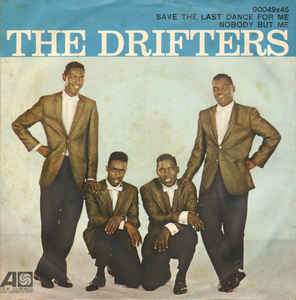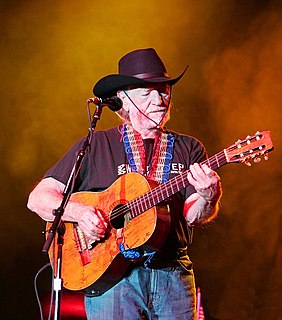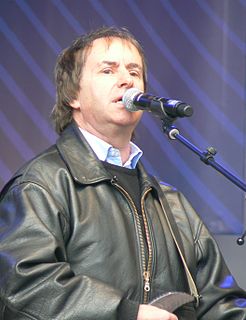Related Research Articles
Stephen Anthony James Duffy is an English musician, singer and songwriter. He was a founding member, vocalist, bassist and then drummer of Duran Duran. He went on to record as a solo performer under several different names, and is the singer and songwriter for The Lilac Time with his older brother Nick. He has also co-written with Robbie Williams and Steven Page.

"Unchained Melody" is a 1955 song with music by Alex North and lyrics by Hy Zaret. North wrote the music as a theme for the little-known prison film Unchained, hence the song title. Todd Duncan sang the vocals for the film soundtrack. It has since become a standard and one of the most recorded songs of the 20th century, most notably by the Righteous Brothers. According to the song's publishing administrator, over 1,500 recordings of "Unchained Melody" have been made by more than 670 artists, in multiple languages.

"Stand by Me" is a song originally performed in 1961 by American singer-songwriter Ben E. King and written by King, Jerry Leiber, and Mike Stoller. According to King, the title is derived from, and was inspired by, a spiritual written by Sam Cooke and J. W. Alexander called "Stand by Me Father," recorded by the Soul Stirrers with Johnnie Taylor singing lead. The third line of the second verse of the former work derives from Psalm 46:2c/3c.

"Twist and Shout" is a 1961 song written by Phil Medley and Bert Berns. It was originally recorded by The Top Notes, but it did not become a hit in the record charts until it was reworked by the Isley Brothers in 1962. The song has been covered by several artists, including several that appeared in the record charts.

"You Keep Me Hangin' On" is a song written and composed by Holland–Dozier–Holland. It was first recorded in 1966 by American girl group the Supremes, reaching number one on the Billboard Hot 100. American rock band Vanilla Fudge released a cover version the following year, which reached number six on the Billboard Hot 100. English singer Kim Wilde covered "You Keep Me Hangin' On" in 1986, bumping it back to number one on the Billboard Hot 100 in June 1987. In the first 32 years of the Billboard Hot 100 rock era, "You Keep Me Hangin' On" became one of six songs to reach number one by two different musical acts. In 1996, American country singer Reba McEntire's version reached number two on the US Billboard Hot Dance Club Play chart. The BBC ranked the Supremes' original song at number 78 on the The Top 100 Digital Motown Chart, which ranks Motown releases by their all-time UK downloads and streams.
"This Ole House" is an American popular song written by Stuart Hamblen, and published in 1954. Rosemary Clooney's version reached the top of the popular music charts in both the US and the UK in 1954. The song again topped the UK chart in 1981 in a recording by Shakin' Stevens.
"Kewpie Doll" is a 1958 popular song, written by Sid Tepper and Roy C. Bennett. It is based on the popular Kewpie comics characters by Rose O'Neill, who inspired a merchandising phenomenon of dolls and other toys.

"Wake Me Up Before You Go-Go" is a song by the English duo Wham!, first released as a single in the UK on 14 May 1984. It became their first UK and US number one hit. It was written and produced by George Michael. The single was certified Platinum in the US, which at the time commemorated sales of over two million copies. The music video features Michael and Ridgely wearing oversized message T-shirts created by Katharine Hamnett, starting a craze covered in the 2002 VH1 series I Love the 80s.

"Devoted to You" is a song written by Felice and Boudleaux Bryant.

"She's Not There" is the debut single by British rock band The Zombies, written by organist Rod Argent. It reached No. 12 in the UK Singles Chart in September 1964, and No. 2 on the Billboard Hot 100 in the United States at the beginning of December 1964. In Canada, it reached No. 2.

"Piece of My Heart" is a romantic funk/soul love song written by Jerry Ragovoy and Bert Berns, originally recorded by Erma Franklin in 1967.

"Save the Last Dance for Me" is a song written by Doc Pomus and Mort Shuman, first recorded in 1960 by the Drifters, with Ben E. King on lead vocals.

"If You Don't Know Me by Now" is a song written by Kenny Gamble and Leon Huff, and recorded by the Philadelphia soul musical group Harold Melvin & the Blue Notes. It became their first hit after being released as a single in September 1972, topping the US R&B chart and peaking at number 3 on the US Billboard Hot 100.

"Don't Make Me Over" is a song written by Burt Bacharach and Hal David, originally recorded by Dionne Warwick in August 1962 and released in fall 1962 as her debut single. The song reached number 21 on the US Billboard Hot 100 and number five on the Billboard Hot R&B Singles chart. It was also a top-forty hit in Canada, reaching number 38. Various covers of the song have been made. Brenda & The Tabulations hit #15 on the R&B charts with their cover in 1970. Jennifer Warnes recorded a version which reached number 67 on the Billboard Hot 100 in 1979, and in 1989, Sybil released a successful dance cover of the song, that was a number-one hit in New Zealand.

"Don't Let Me Be Misunderstood" is a song written by Bennie Benjamin, Horace Ott and Sol Marcus for the singer and pianist Nina Simone, who recorded its first version in 1964. "Don't Let Me Be Misunderstood" has been covered by many artists, most notably by The Animals, whose blues rock version of the song became a transatlantic hit in 1965. A 1977 four-on-the-floor disco rearrangement by disco group Santa Esmeralda was also a hit, while a 1986 cover by new wave musician Elvis Costello found success in the British Isles.

"Run to Me" is a song by the Bee Gees, the lead single and first track on the group's album To Whom It May Concern (1972). The song reached the UK Top 10 and the US Top 20.
"Hey Bartender" is a song written by Dossie Terry, copyright filing EU389235 dated 10MAR55 and renewed RE180048 11MAR83. It was first recorded by Floyd Dixon in 1955 on Cat Records 114; the label credits "Terry" as composer. A cover by "Blue Boo Boo" Blazer & Little Archie Taylor with Geechie Hicks & His Creole Combo was released as a b-side in 1959 and it was credited to "Blazer-Williams". A cover by Laurel Aitken in 1961 titled "Bar Tender" made the song a huge success, though the Blue Beat 45 label credited "L. Aitken" as composer. It was subsequently covered and recorded live by The Blues Brothers in 1978 although the composer credit on the Atlantic Records release indicated "Floyd Dickson". It was also recorded by American country music artist Johnny Lee though his release also credited "Floyd Dickson" as composer. It was released in June 1983 as the first single and title track from his album Hey Bartender. The song reached number 2 on the Billboard Hot Country Singles chart and number 1 on the RPM Country Tracks chart in Canada.

The following is a detailed discography of all singles released by country music singer Willie Nelson. A total of 25 Nelson singles have reached number one on music charts.

The discography of British-Irish musician Chris de Burgh consists of 21 studio albums, 9 compilation albums, 4 live albums and 66 singles, along with 8 videos and DVDs and one box set. His 21 studio albums consist of 17 of completely new material, 2 albums of cover versions, 1 album featuring a mix of new songs, cover versions and re-recordings and 1 consisting of acoustic versions of previously released tracks. His debut album, Far Beyond These Castle Walls, released in 1974, was number 1 in the Brazilian charts, but failed to chart in any other countries.

The singles discography of American country artist Dottie West contains 71 singles, 12 collaborative singles, 3 promotional singles and 1 other charting song. West signed with RCA Victor Records in 1963, having her first Top 40 hit the same year. It was followed in 1964 by "Love Is No Excuse", a duet with Jim Reeves that became West's first top 10 hit. In 1964, she also released "Here Comes My Baby". The song reached number 10 on the Billboard Hot Country Singles chart and became the first song by a female country artist to win a Grammy award. From her 1966 album, West issued four singles, including the top 10 hits "Would You Hold It Against Me" and "What's Come Over My Baby". Over the next two years she had major hits with "Paper Mansions", "Like a Fool", "Country Girl", and "Reno". In 1969, West collaborated with Don Gibson on "Rings of Gold", which reached number 2 on the Billboard country chart. In 1973, she released a single version of a commercial jingle originally used by The Coca-Cola Company. Entitled "Country Sunshine", the song became West's biggest hit, reaching number 2 on the country songs chart and number 49 on the Billboard Hot 100. The song also nominated her for her eleventh Grammy. After releasing the top 10 hit "Last Time I Saw Him" (1974), West's chart hits declined and she was dropped from RCA in 1976.
References
- ↑ http://www.45cat.com/record/gt42043
- ↑ http://www.45cat.com/record/nc461885us
- ↑ "The Willis Brothers singles". Allmusic . Retrieved 31 March 2011.
- ↑ "RPM Country Singles for November 9, 1964". RPM . Retrieved 31 March 2011.
| | This 1960s country song-related article is a stub. You can help Wikipedia by expanding it. |